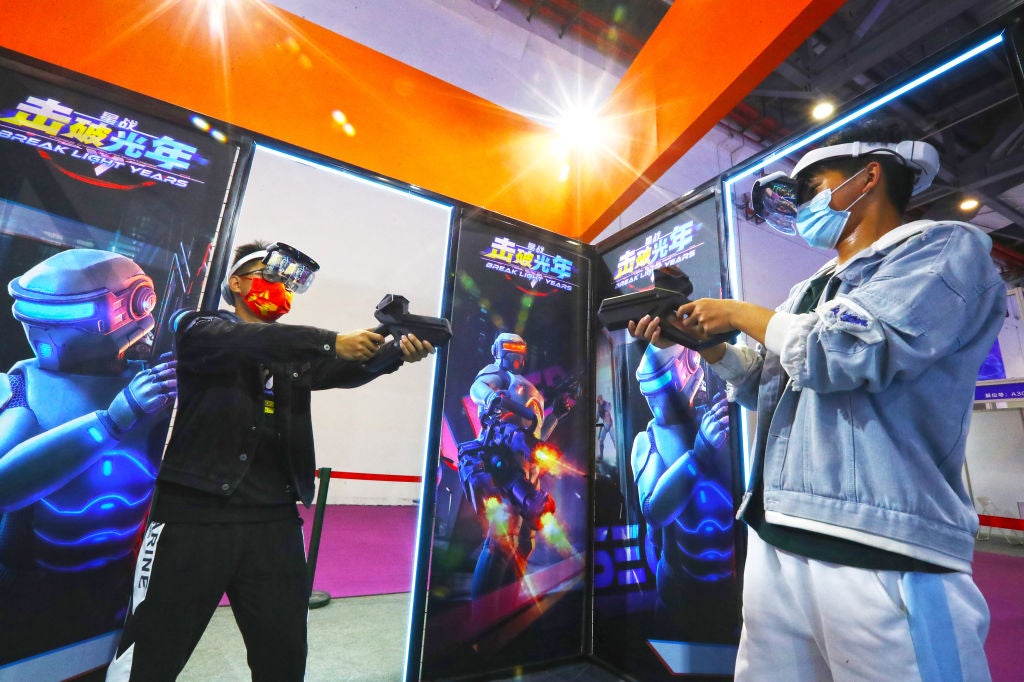
The Chinese state is rejecting trademark applications relating to the metaverse, rebuffing companies big and small as hype ratchets up.
According to a report from the South China Morning Post, China’s National Intellectual Property Administration has rejected multiple applications featuring the Mandarin translation of “metaverse”. Data from Beijing business and trademark registration tracking firm Tianyancha revealed some of the rebuffed applications came from heavy hitters such as game giant NetEase and e-commerce leader Xiaohongshu.
Applications from China tech big guns Alibaba, Tencent and ByteDance meanwhile have remained in limbo, according to information from another Chinese registration data platform.
Beijing’s aggressive stance comes as it tries to control the tide of metaverse interest in the country: around 1,510 mainland Chinese companies have recently applied for trademarks relating to the tech, which offers users digital worlds through the use of virtual or augmented reality (VR, AR) technology.
The field is seen as unregulated in China; Verdict recently reported on warnings from a state mouthpiece of “capital manipulation and monopoly tension in the metaverse.”
The report from a research arm of The People’s Daily, a known arm of the Beijing government, also warned of echo chambers hyping metaverse interest beyond reality.
How well do you really know your competitors?
Access the most comprehensive Company Profiles on the market, powered by GlobalData. Save hours of research. Gain competitive edge.

Thank you!
Your download email will arrive shortly
Not ready to buy yet? Download a free sample
We are confident about the unique quality of our Company Profiles. However, we want you to make the most beneficial decision for your business, so we offer a free sample that you can download by submitting the below form
By GlobalDataWhile it may be unsurprising that President Xi Jinping and his government are reining back the Chinese tech industry once more, the data from Tianyancha does throw up a few interesting names. Besides social, games and video commerce platforms, Chinese electric vehicle makers such as Nio and XPeng are also on the list of Big Tech names looking for a stake in the Chinese metaverse.
Also on the list is Tencent, whose President Marin Lau remarked in a recent earnings call that the Chinese government will most likely support the development of the metaverse in China as long as it complies with domestic regulations.
Lau said that although China may have different metaverse-related laws compared to other countries, it is not fundamentally averse to its development.
This belief was backed up by Chinese tourist destination Zhangjiajie becoming designated as “the world’s first scenic spot metaverse research and development (R&D) centre” last year.
“For Beijing, if Xi’s attitude to video games is anything to go by, the metaverse threatens to be an amped up force for undermining China’s young unless tightly regulated and, to use Xi’s own phrase, ‘engineered from above’,” says Michael Orme, senior analyst and China specialist at GlobalData.
“Rather than being a leading force in the metaverse as understood by Meta, Microsoft and Apple, at the very top of Beijing’s agenda is global domination of Industry 4.0 when pervasive AI-powered, interconnected cyber-physical systems will orchestrate mentally and socially constructive entertainment as defined by Beijing.”
According to GlobalData forecasts, China’s economy is expected to grow by 5.5% in 2022.







